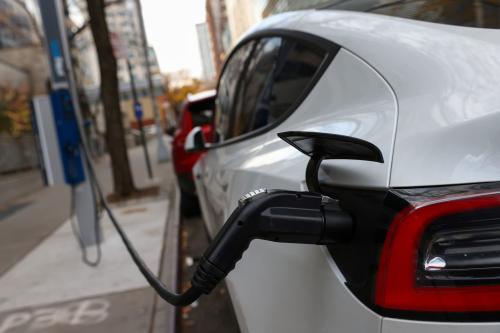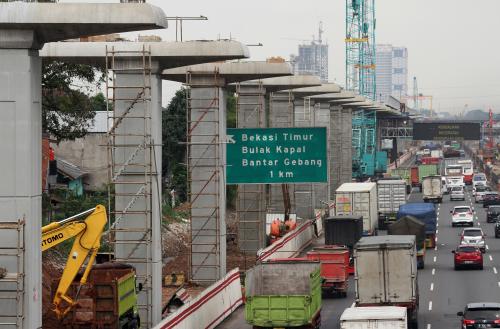A recent open letter written by American and European experts and former officials concluded “the government of Azerbaijan cannot be both a respected member of the international community and a repressive, kleptocratic autocracy.” However, with the first-ever European Games that open today in Baku, Azerbaijan’s leadership is trying hard to prove them wrong. It seeks to demonstrate that rich petro-states can buy respectability through hosting major sporting events. It will not be the last state to try this strategy—the next two FIFA World Cups will be in Russia and Qatar (as of now). As such, it is critical that the international community demonstrate to the Azerbaijanis, and to similar regimes that are watching closely, that respectability cannot be achieved by sports pageantry alone.
The European Games are an Olympics-style sporting event with 6,000 athletes representing more than 50 countries. Azerbaijan has spent an estimated eight to 10 billion U.S. dollars on the Games––including constructing five new sport venues and covering airfares and accommodations for participating teams.
For Azerbaijan, the Games are an opportunity to combine much-needed image management with a global coming-out party. Having hosted the 2012 Eurovision Song Contest, the country’s leaders hope to reinforce its European connections while acquainting an international television audience with Baku, its stylish capital on the shores of the Caspian Sea.
Reversal of fortune
Successfully staging a huge and complex multi-sport event, the government hopes, will stand as a testament to Azerbaijan’s socio-economic transformation over the last decade. Immediately after the collapse of the Soviet Union, Baku was the capital of a war-torn hinterland on the grey fringes between Asia and Europe. It was saddled with the vestiges of a moribund planned economy and a major refugee crisis after the outbreak of conflict with Armenia over Nagorno-Karabakh.
Since the mid-1990s, the country has had a dramatic reversal of fortune. Major oil and gas projects, led by international energy companies with political support from the United States and Europe, unlocked Azerbaijan’s revenue-generating export potential. The Baku-Tbilisi-Ceyhan oil pipeline and other infrastructure have put Azerbaijan on the map as part of a “Southern Energy Corridor” bringing Caspian Basin energy to European markets as an alternative to Russian supplies. The state’s geostrategic location, bordering Russia, Iran, and the Caspian, elevated its status in U.S. security calculations.
Since the early 2000s, Azerbaijan has been one of the world’s fastest-growing economies, more than tripling its GDP, reducing its official poverty rate from 50 to six percent, and lowering its unemployment to an enviable 4.9 percent in 2013. In Baku, sleek office towers, high-end luxury shops, a glittering cultural center, concert hall, and airport display this new wealth. Juxtaposed with images of Baku’s Inner City––with its 12th-century stone walls and iconic Maiden Tower––the modern new buildings and seaside promenades will form a telegenic backdrop for the Games.
The darker side
The international attention leading up to the Games, however, has also cast light on issues Azerbaijan would prefer left in the shadows. The country has come under Western media scrutiny and government criticism for the persecution and imprisonment of journalists, civil society activists, opposition politicians, and human rights defenders. Azerbaijan now has nearly 100 political prisoners, twice as many as Russia and Belarus together. In recent months, the government has frozen the assets of Western-funded NGOs and closed down foreign nonprofits that promote democracy and cross-cultural exchanges.
This negative attention has triggered a strident counter-reaction in Baku. Several foreign journalists and representatives of human rights organizations have been barred from attending the Games or refused press accreditation. Azerbaijani officials have accused the West of slandering the country through “black PR” campaigns and attempting to orchestrate a color revolution by backing dissident activists and NGOs. These assertions reveal a profound deterioration of trust in Azerbaijan’s relations with the United States in particular. Indeed, many of the domestic journalists and Azerbaijani activists targeted by the government seem to have been singled out precisely because of their close ties with U.S. entities almost as a form of proxy punishment.
The rift in Azerbaijan’s relationship with the West has been evident for some time, fueled on both sides by different understandings of what the oft-professed “strategic partnership” means. The concept has been oversold by Washington, and Baku had unreasonable expectations about what the partnership would deliver. Azerbaijan also perceives a double standard in the U.S. and West’s variable support for international principles, especially territorial integrity. For Azerbaijan, the West’s forceful response and sanctions against Moscow after its annexation of Crimea stands in sharp contrast to the muted international reactions to the decades-long occupation by Armenian-backed forces of nearly one-fifth of Azerbaijan’s territory. To Baku, the West seems to have forgotten this violation despite the four U.N. Security Council resolutions calling for an Armenian withdrawal. Azerbaijan insists that Washington’s policy toward the region has been influenced by the U.S.-Armenian diaspora, which successfully lobbied to have Azerbaijan excluded from receiving direct U.S. government assistance during the early phases of the war over Nagorno-Karabakh.
Refresh and play fair
The problems in the relationship cannot be brushed away, but the European Games can be an opportunity for the West and Azerbaijan to stand back, take a fresh look, and see if they can re-engage constructively. To do this, both sides will need to be realistic, consistent, and in the spirit of good sportsmanship, play fair.
Practical steps can begin the process of rebuilding eroded confidence and mutual respect. Incremental measures towards resolving the Nagorno-Karabakh conflict should be developed and backed by real incentives that boost the benefits of peace for both sides. The West should also revive its support for Azerbaijan’s independence and territorial integrity, but be realistic about the limits of its leverage and careful not to over promise.
Baku should curb its anti-American and anti-Western rhetoric, cease its intimidation and imprisonment of activists, and respect democratic rights. For Azerbaijan to realize its goal of using the Games to position the country on the map of Europe, it must do more than just put on a good show.



Commentary
Confidence Games: Azerbaijan, the European Olympics, and the West
June 12, 2015